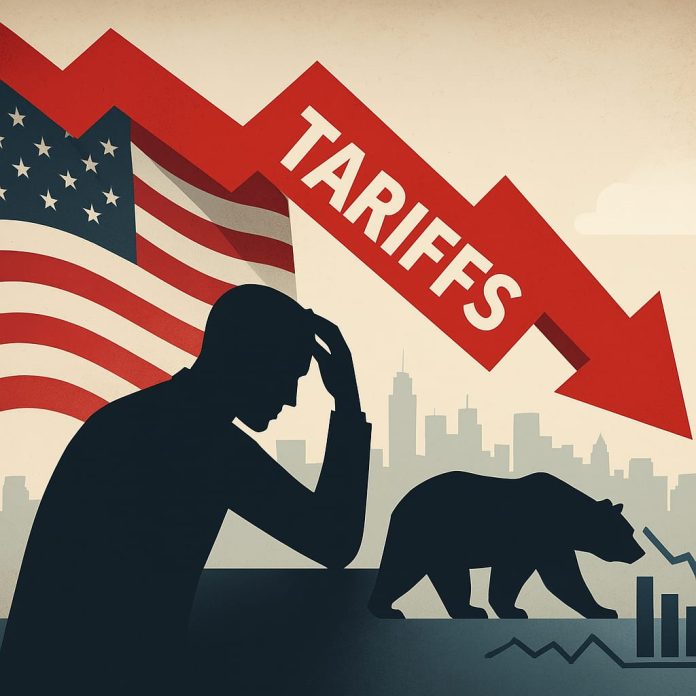By Newspot Nigeria Editorial Board
President Trump’s latest tariff decisions have ushered in a period of intense market uncertainty, pushing inflationary pressures higher and rattling the outlook for corporate profitability in the U.S. and beyond. While tariffs are often marketed as tools of economic patriotism, their unintended consequences—particularly when poorly explained or inconsistently applied—can undermine investor confidence and economic growth.
According to a recent analysis by Morgan Stanley’s Global Investment Committee, “odds of a recession or ‘stagflation’—in which growth slows and inflation persists—have increased,” while the chances of a soft landing for the U.S. economy have fallen sharply. S&P 500 earnings forecasts for 2025 have already dropped from $270 to around $255–$260 per share, reflecting the market’s unease and the mounting impact of trade friction.
What makes the current tariff wave particularly destabilizing is the lack of clarity. Are these tariffs meant to boost U.S. manufacturing? Plug fiscal deficits? Or pressure foreign markets into better trade terms? The absence of a coherent, long-term trade strategy makes it nearly impossible for businesses or investors to plan with any certainty. This policy ambiguity compounds risk in an already fragile global economy.
In response, Morgan Stanley suggests that investors should avoid panic moves and consider shifting excess reserves into short-term fixed income, private investments, and real assets such as commodities—signs not of economic expansion but of financial defensiveness.
Importantly, voices from around the world are beginning to speak up. Policymakers in Europe, Asia, and Africa have started warning against a cascade of retaliatory measures that could drag the global economy into a trade-induced slump. Even the Director-General of the World Trade Organization (WTO), Dr. Ngozi Okonjo-Iweala, recently cautioned that rising protectionism threatens to “fracture the global economy,” making it harder for developing countries to access essential goods and markets.
Yet, one cannot help but wonder whether the real casualty in this tariff drama is global trust. Trust in trade norms, trust in the rules-based order, and trust that the world’s leading economies will not wield economic tools like sledgehammers in a dark room. Even America’s allies are taking note—and not with admiration.
For Nigeria and other emerging markets, the ripple effects are real. Trade volatility in the U.S. and China often translates into disrupted supply chains, increased import costs, and shrinking investment flows. In a world where capital is increasingly cautious, Nigeria cannot afford to be passive. It must pursue strategic trade alliances, deepen regional integration through AfCFTA, and cushion itself with inflation-resistant asset strategies.
At Newspot Nigeria, we believe Nigeria’s policymakers must read these global tea leaves carefully. Tariff turbulence in Washington may feel distant, but in today’s interconnected world, no economy is truly insulated. Now is the time to prepare—not panic.
Share your story or advertise with us: Whatsapp: +2347068606071 Email: info@newspotng.com














